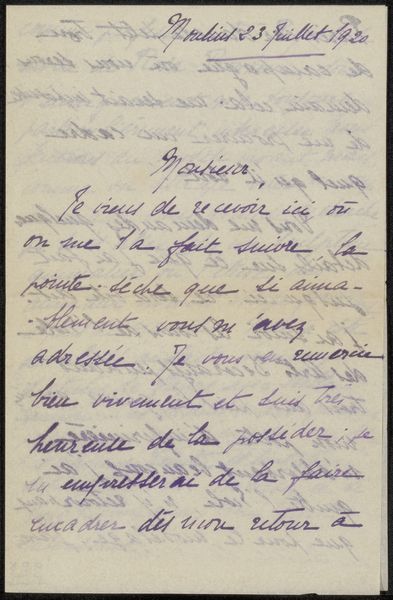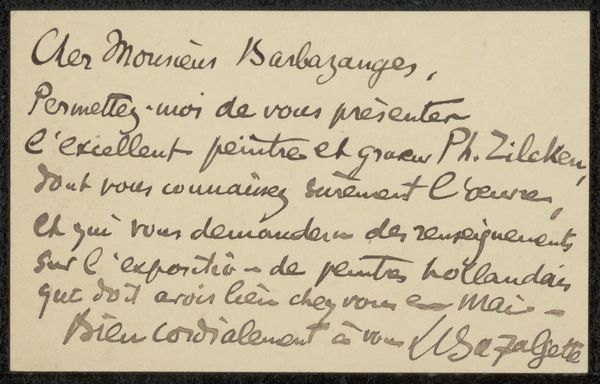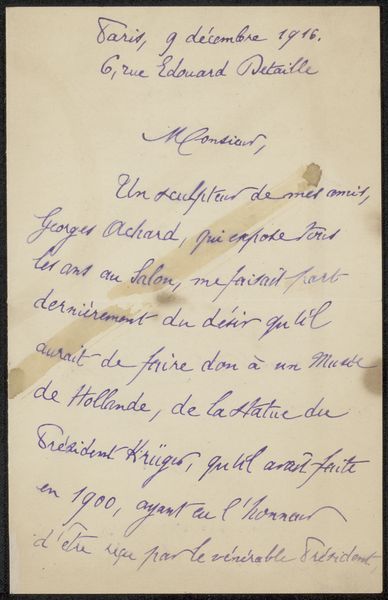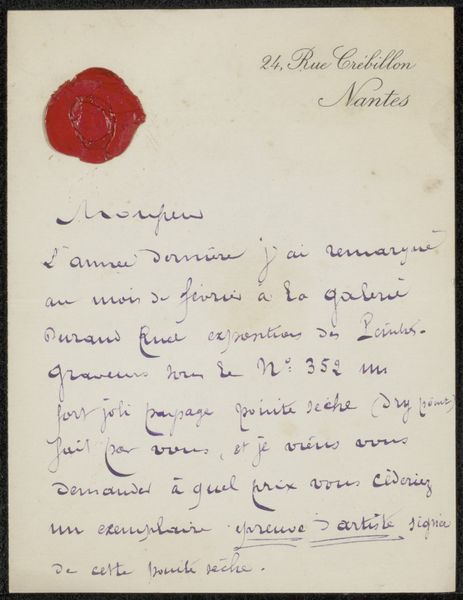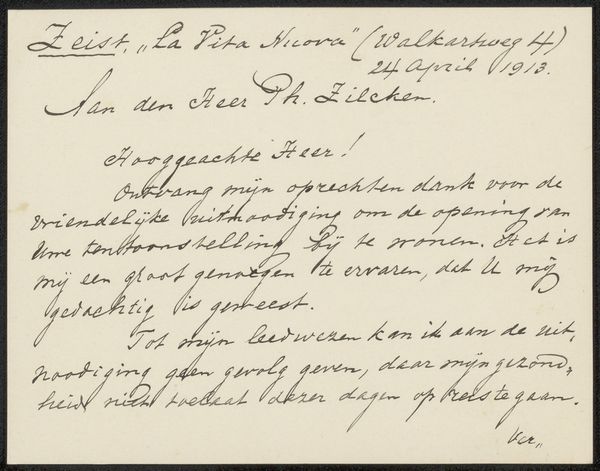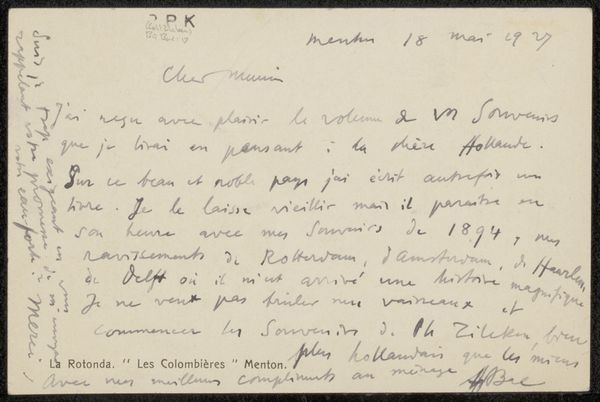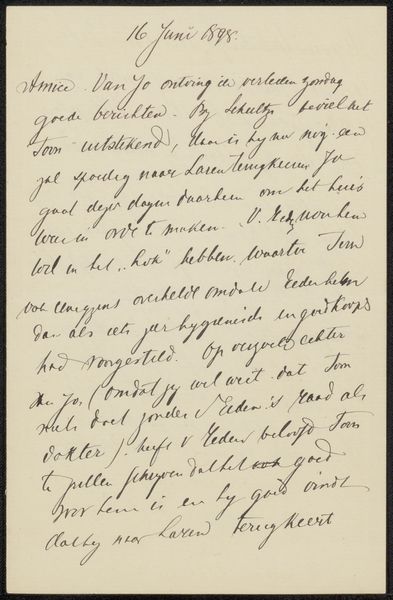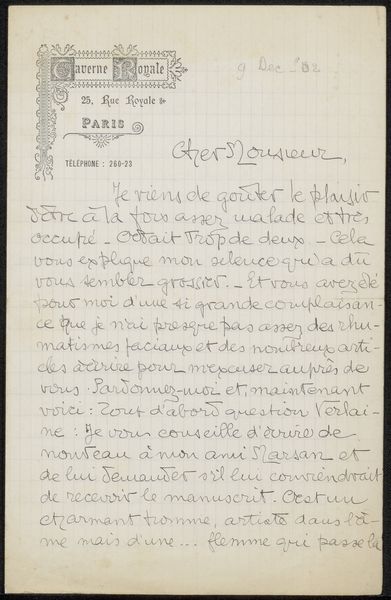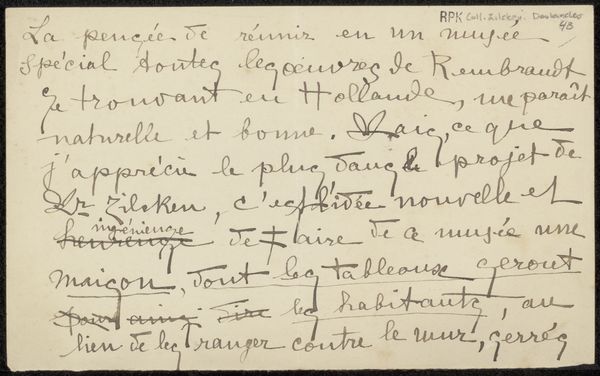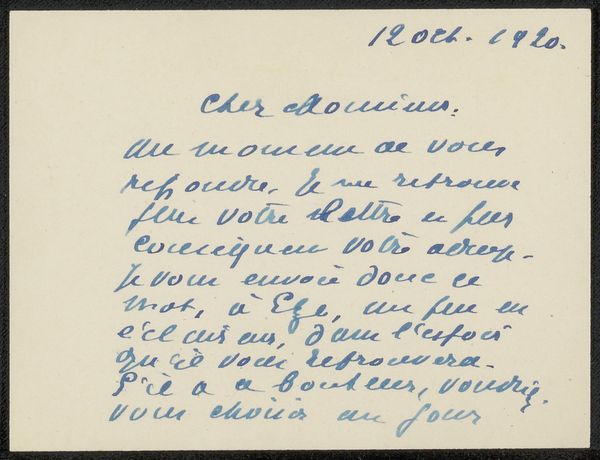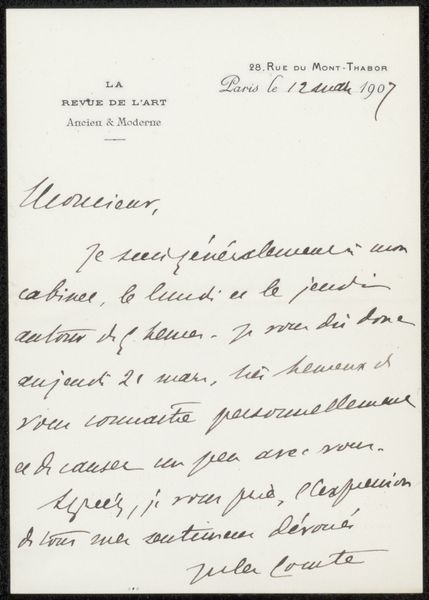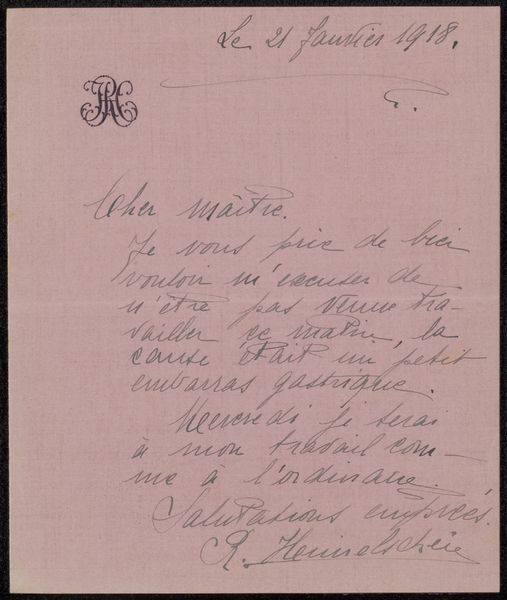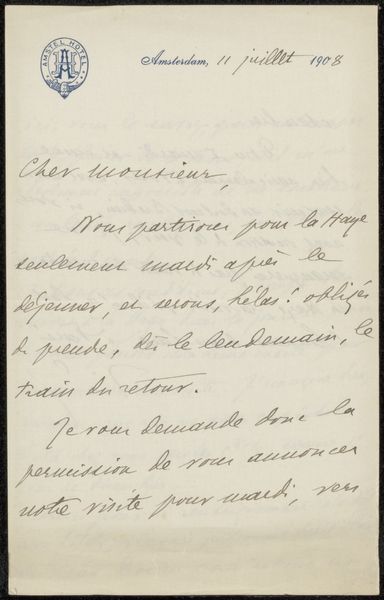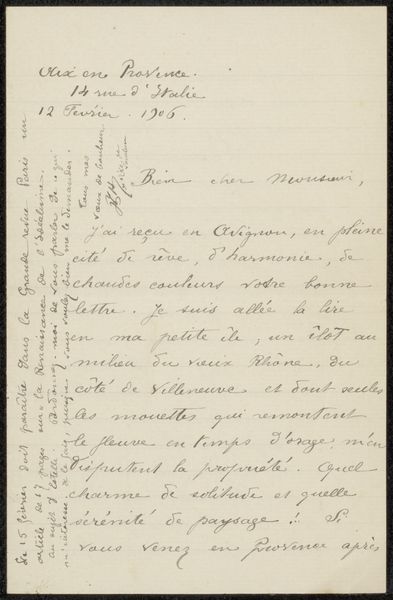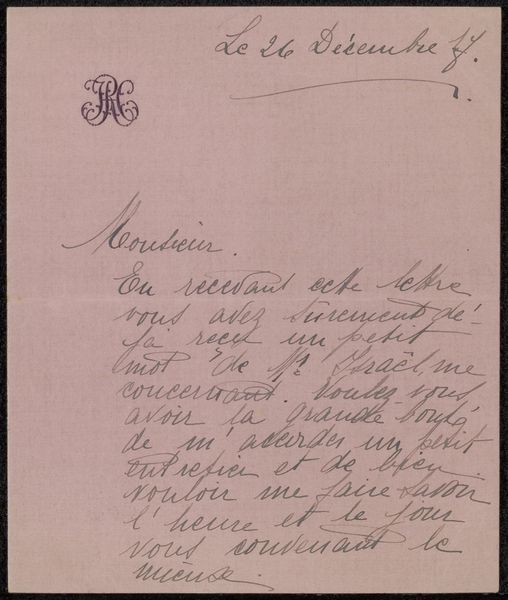
#
portrait
#
script typeface
#
type repetition
#
sand serif
#
script typography
#
hand drawn type
#
hand-drawn typeface
#
stylized text
#
thick font
#
handwritten font
#
columned text
#
calligraphy
Copyright: Rijks Museum: Open Domain
Curator: This is "Prentbriefkaarten aan Philip Zilcken", or "Postcards to Philip Zilcken," believed to be from 1921, by Ferdinand-Sigismund Bac. It's essentially a piece of ephemera: a postcard covered in densely written script. Editor: My initial feeling is one of intimacy. It's so personal, like catching a glimpse into a private conversation. The handwriting itself adds a layer of emotion—I sense a kind of urgency and warmth. Curator: The handwriting is key here. Think about who was producing and receiving these cards, and their purposes, as physical objects of communication within a specific network. The card also clearly has the line "This card cannot be sold except to the profit of the War Wounded and Orphans." This was at a time when there were a lot of War Wounded individuals, many of which were abandoned by institutions, and relied on alternative economies to get by. It becomes something more than a note. Editor: That inscription, its location in proximity to both the place for addresses and correspondence, creates an odd tension with this intensely personal communication. Is the artist exploiting a program of good-will to support traumatized veterans, or highlighting the contrast between mundane pleasantries with someone when a society that produced so much destruction is on the fringes? Curator: It's an incredibly interesting layering. Bac was connected with several artists and figures on the cultural left at that time. Knowing this, I am tempted to read the artist deploying some sarcasm, or dark humor, that many were sharing at this moment when many people questioned everything as traditions seemed to be breaking. Editor: Perhaps this highlights the complexity of identity, especially the privileges one is afforded, relative to the marginalized. These small postcards hold vast political and social implications within the broader tapestry of interwar society. Curator: Examining this postcard allows us to think about how everyday communications were intertwined with significant historical moments. Thanks for teasing this piece apart with me. Editor: Absolutely. It shows the potency and fragility of art as a means of personal connection.
Comments
No comments
Be the first to comment and join the conversation on the ultimate creative platform.
